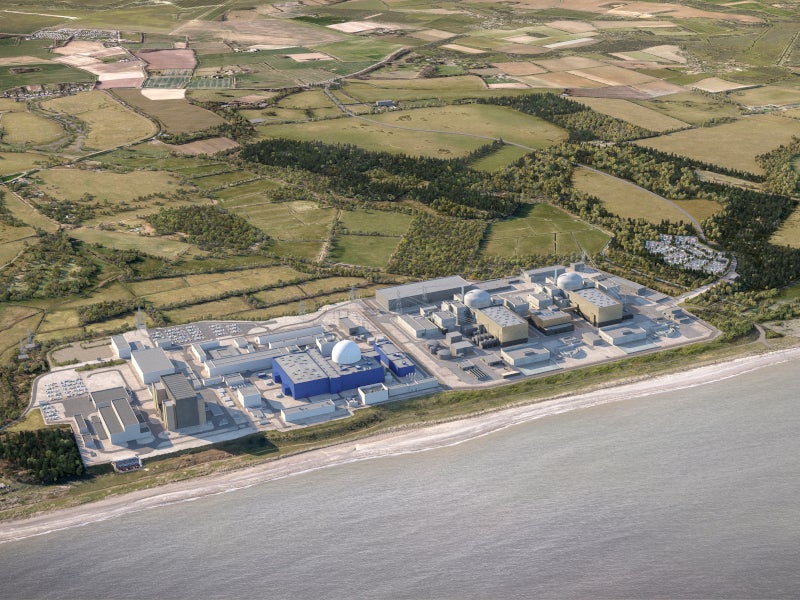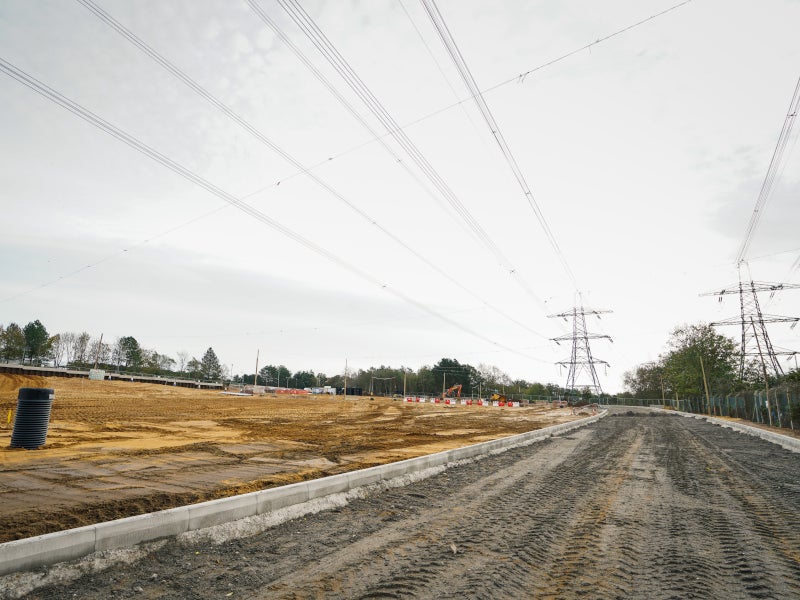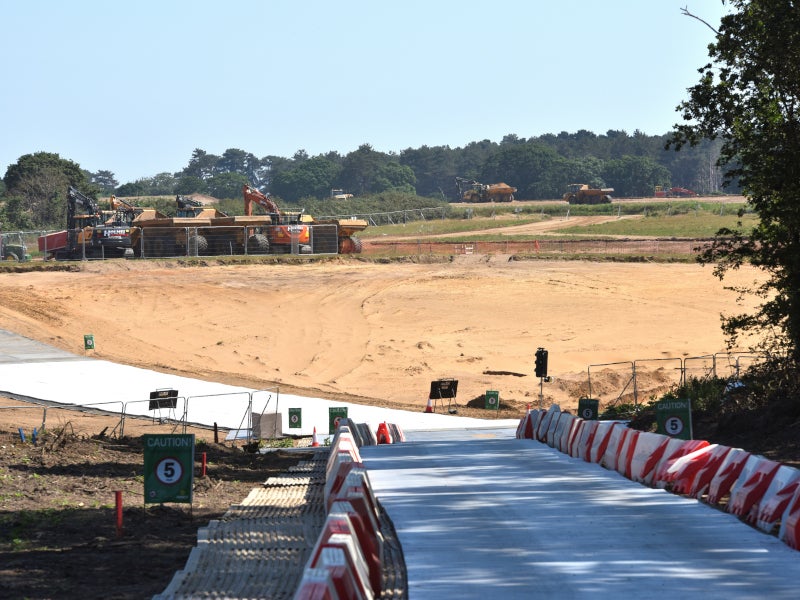Sizewell C is a proposed 3.2GW nuclear power station to be constructed in East Suffolk, England, UK.
The project is expected to generate up to 7% of the UK’s power need, equivalent to powering roughly six million homes and will have a life of 60 years. It will also help in reducing CO2 emissions by nine million tonnes a year.
The Sizewell C project is being developed under a joint venture partnership between the UK government, Sizewell C Company and EDF, a French state-owned energy company.
The project involved four rounds of public consultation, which began in 2012 with more than 10,000 East Suffolk residents. Construction on Sizewell C is expected to commence in 2024 and the plant is scheduled to start operations in 2030.
The project is expected to create up to 900 permanent jobs and is estimated to add £4bn ($4.8bn) to the regional economy over its lifetime.
Sizewell C power plant location
Sizewell C’s main development site is located on the southern coast of Suffolk, close to the towns of Felixstowe and Lowestoft within East Suffolk Council’s local authority boundaries.
The plant will be located approximately 1.5km northeast of Leiston, Suffolk and will be constructed on a 33ha site. It will be located to the north of the existing Sizewell B nuclear power station.
Sizewell C power station details
The Sizewell C nuclear power plant will consist of two European Pressurised Reactors (EPRs), with an estimated net combined capacity of approximately 3.2GW.
The plant will be built in a manner very similar to that of the Hinkley Point C, which is currently under construction in Somerset.
Two nuclear islands will be built to house the two reactor buildings. The associated annexed buildings and structures will include safety systems, fuel handling systems, access facilities and emergency diesel generator buildings. Two cooling water pumphouses and associated systems will also be included for each EPR.
Two conventional islands will also be constructed, each housing a turbine hall and associated infrastructure to export the generated power.
Other associated infrastructure will include a 400kV substation for the National Grid, along with overhead power lines and pylons connecting the conventional islands to the substation.
Radioactive waste disposal
High-level radioactive waste and spent fuel will be packaged in shielded concrete casks and stored in an interim storage facility on the project site.
Stainless steel drums will be used to package intermediate-level radioactive waste and it will be stored in a shielded facility made of concrete.
Low-level radioactive waste will be taken to the UK’s Low-Level Waste Facility at Drigg in Cumbria.
Financing of Sizewell C
The UK Government announced the investment of £700m ($885.67m) to support the construction of Sizewell C in November 2022.
Under the financing agreement, the UK Government earned a 50% share of the project.
A further investment of £170m ($218.47m) was announced by the government in July 2023. The investment will be used to prepare the Sizewell C site for construction, including the procurement of key components from the project’s supply chain and workforce expansion.
Sustainable features of Sizewell C
The Sizewell C power station will be constructed on a platform approximately 7m above the average sea level at the time of construction and will be covered by a sea protection structure that will be more than 14m above the average sea level.
In addition to decarbonising the electricity mix, the power plant will also reduce emissions in other sectors, such as transport and heating.
Since Sizewell C will be built right next to Sizewell B, the impact on the environment will be limited and the site can take advantage of the nuclear licencing and the grid connection.
Contractors involved
Egis, a consulting, construction engineering and operating corporation, was appointed to lead civil works design for Sizewell C’s nuclear islands. It will be responsible for supporting the planning, design and construction of the two pressurised reactors. Egis is the lead design engineer of the ICOSH consortium and will work with its members: Jacobs UK, Setec TPI and Tractebel Engineering.
Framatome, a nuclear reactor business company, was engaged in the design and construction of the project. The scope of work includes manufacturing the steam supply systems, instrumentation and control systems management and early engineering and procurement activities.
EDF will support the design, engineering and technical aspects of the construction and operation of Sizewell C.
The advising consultancies for the project include Quod, a consultancy based in Brazil; Clifford Chance, a London-based law firm and Agila, an infrastructure consultancy based in the UK.






